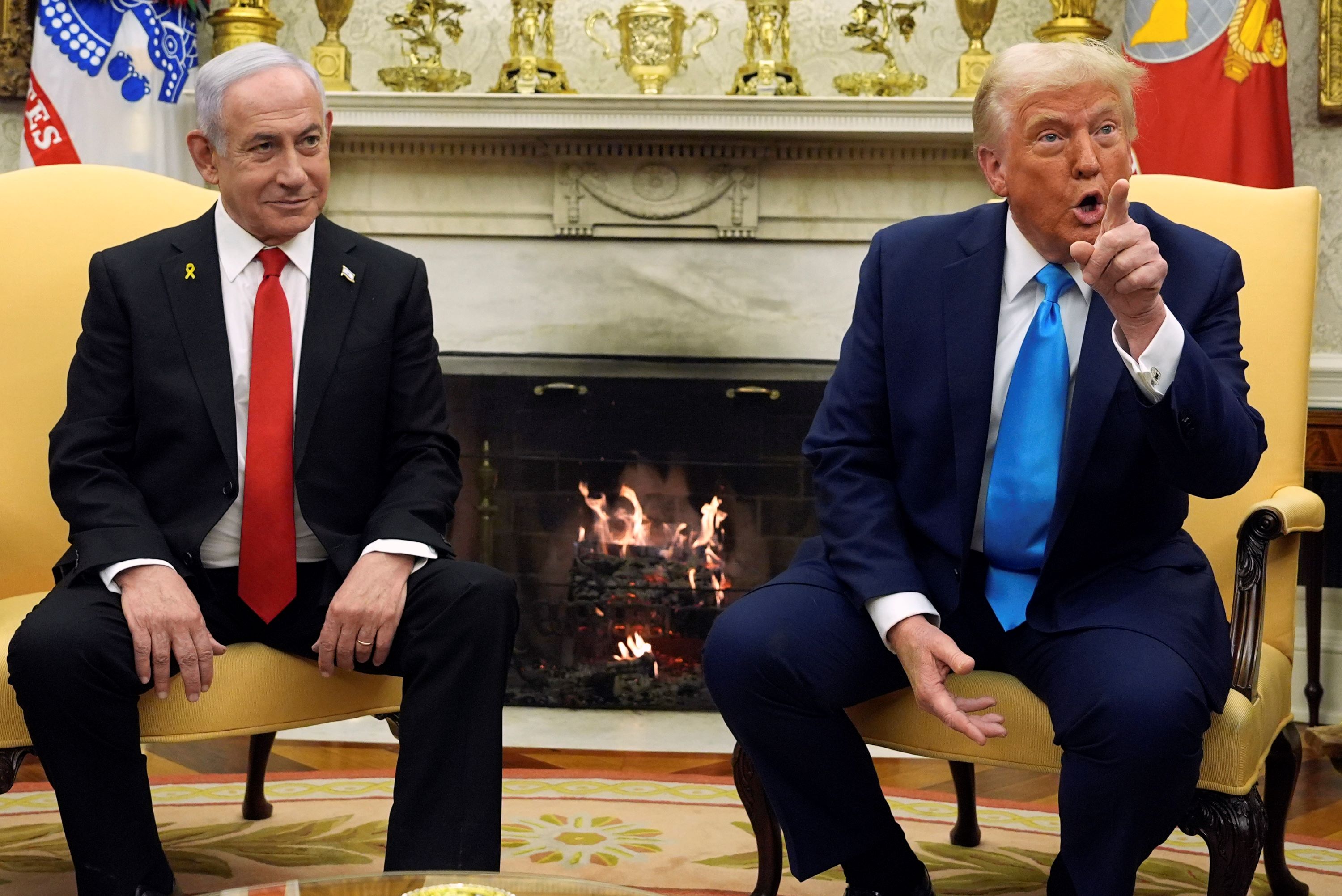
JERUSALEM - Israel is discussing US President Donald Trump's "revolutionary, creative vision" on the Gaza Strip, the one that Trump is "very determined to implement", Israeli Prime Minister Benjamin Netanyahu said on Sunday.
Trump's plan "opens up many possibilities for us," Netanyahu told a cabinet meeting after his return from Washington to Israel, according to a statement released by Netanyahu's office.
"For an entire year, we have been told that the 'day after' (in Gaza) must involve the PLO (the Palestine Liberation Organization), the Palestinian Authority ... President Trump has presented a completely different vision, one that is much better for the State of Israel," Netanyahu said.
READ MORE: World condemns Trump’s Gaza takeover proposal
According to the statement, Netanyahu and Trump have agreed on achieving all of Israel's war objectives, including "eliminating" Hamas, releasing all Israeli hostages, ensuring Gaza no longer poses a threat to Israel, and returning displaced Israeli residents.
Another war objective of Israel is to prevent Iran from obtaining nuclear weapons, Netanyahu added.
During a joint press conference in Washington with Netanyahu on Tuesday, Trump said the United States plans to "take control of the Gaza Strip", move Palestinians to neighboring countries, and redevelop the coastal enclave.
READ MORE: S. Arabia rejects Israel PM Netanyahu's remarks on displacing Palestinians
On Thursday, Netanyahu suggested during an interview with Israel's Channel 14 that "Saudis can establish a Palestinian state in Saudi Arabia; they have plenty of land there".
Both Trump's and Netanyahu's remarks have sparked regional and international outcry, with many countries voicing their rejection of displacing Palestinians from their homeland and their support for the two-state solution.



